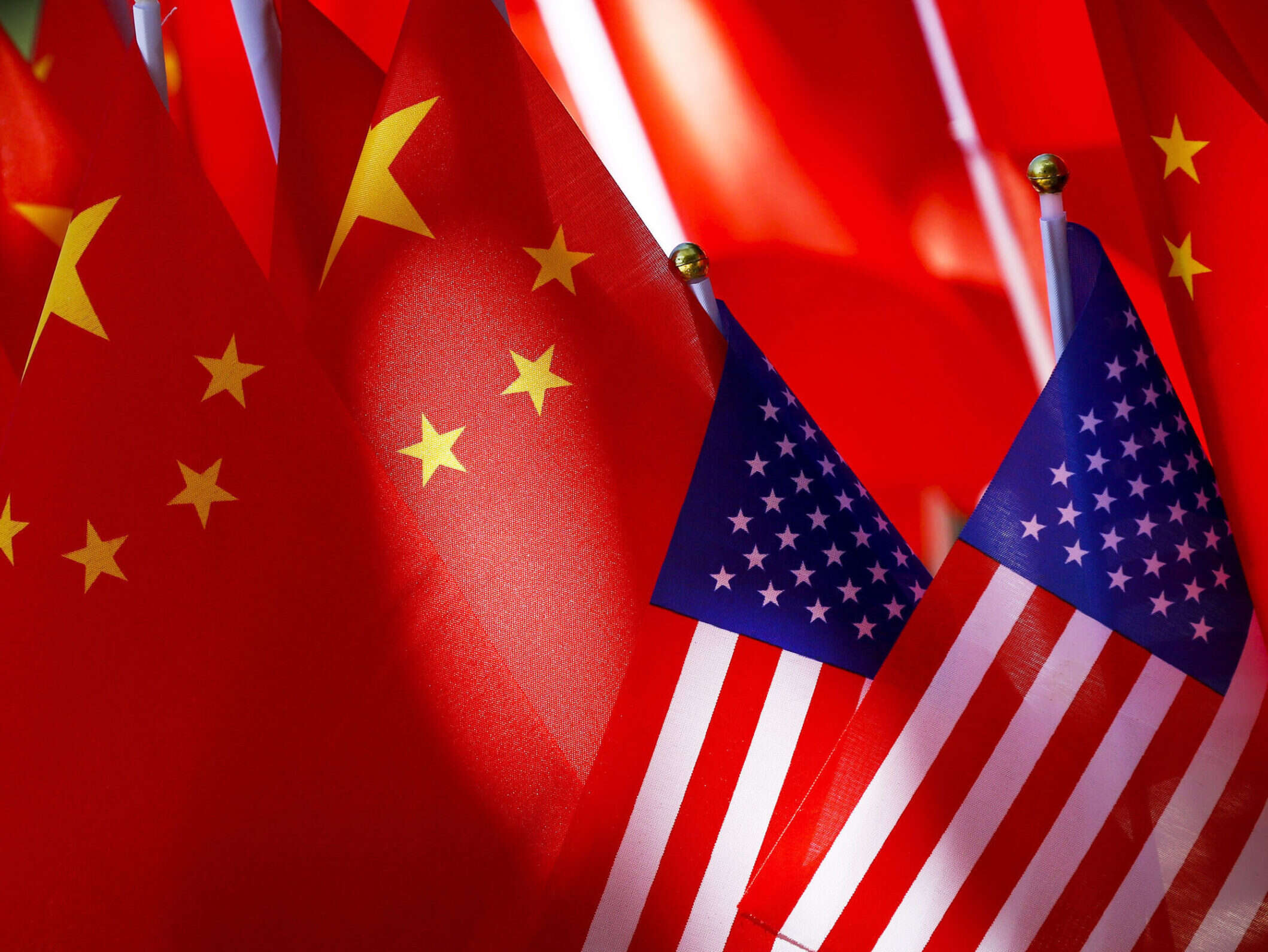
The Trump administration has added four Chinese media outlets to a list of organisations that should be considered “foreign missions” because of their ties to the Chinese government and ruling Communist Party.
The move could force some of the outlets to cut staff in the US and is likely to further aggravate relations between the two countries.
State Department officials said the four organisations, including the state-run CCTV, would be required to submit a list of all staff working for them in the US and any real estate holdings, just as they would if they were foreign embassies or consulates.
The other three added to the list of foreign missions are the China News Service, the People’s Daily newspaper and the Global Times.
None are being ordered to leave the US and no limits on their activities were announced.
But five other Chinese organisations were directed to cap the number of people who could work in the United States in March – a month after they were designated as foreign missions.
US State Department officials said the organisations were essentially mouthpieces for the Communist Party and Chinese government, not legitimate news outlets.
“The Communist Party does not just exercise operational control over these propaganda entities but has full editorial control over their content,” said Assistant Secretary of State for East Asia and Pacific Affairs David Stilwell.
“This foreign mission designation is an obvious step in increasing transparency of these and other PRC [People’s Republic of China] government propaganda activities in the United States.”
It was not yet clear how many journalists work in the US for the organisations.
The US designated Soviet outlets as foreign missions during the Cold War. That precedent reflects the bitter state of relations between the US and China, which are at odds over the origin and response to the coronavirus, trade, human rights and other issues.
President Donald Trump highlighted the dispute over the coronavirus when he spoke to a rally on Saturday in Oklahoma and used a racist term for Covid-19, calling it the “kung flu”.
White House press secretary Kayleigh McEnany defended Trump’s use of the term on Monday, telling reporters the president was merely pointing out that the origin of the virus was China.
“It’s a fair thing to point out as China tries to ridiculously rewrite history,” she said.
“What President Trump is saying, ‘No China, I will label this virus for its place of origin’.”
US officials say the designated media outlets should be considered foreign missions under American law because they are “substantially owned or effectively controlled” by the government of the People’s Republic of China and should not be treated like traditional news organisations.
“These aren’t journalists. These are members of the propaganda apparatus in the PRC,” Stilwell said in a conference call with reporters.
During the call, the chief State Department spokesperson, Morgan Ortagus, ordered the line muted of a reporter who asked a question related to the new book by former national security adviser John Bolton, who wrote that Trump had “pleaded” with Chinese President Xi Jinping during a 2019 summit to help with his re-election.
When another reporter on the call noted the apparent contradiction of refusing to discuss Bolton’s allegations during a call about press freedom, the spokesperson chastised the journalist and called it a “pretty offensive question”.
Asked about potential Chinese retaliation, Stilwell noted American journalists working in China already faced tight restrictions on their activities.
China had no immediate reaction to the announcement but its foreign ministry accused the administration of harbouring a “Cold War mentality and ideological prejudice” when it applied the same designation to five media organisations earlier this year.
At that time, the administration applied the label to the Xinhua News Agency, China Global Television Network, China Radio International, the China Daily Distribution Corporation and Hai Tian Development USA, which distributes the People’s Daily newspaper.
The Trump administration capped the number of journalists allowed to work in the US from these five outlets at 100, down from about 160.
At the time, the US cited China’s increasingly harsh surveillance, harassment and intimidation of American and other foreign journalists in China.
China announced in response that it would revoke the media credentials of all American journalists at The New York Times, The Wall Street Journal and The Washington Post.
Picture: AP Photo/Andy Wong, File
Email pged@pressgazette.co.uk to point out mistakes, provide story tips or send in a letter for publication on our "Letters Page" blog
